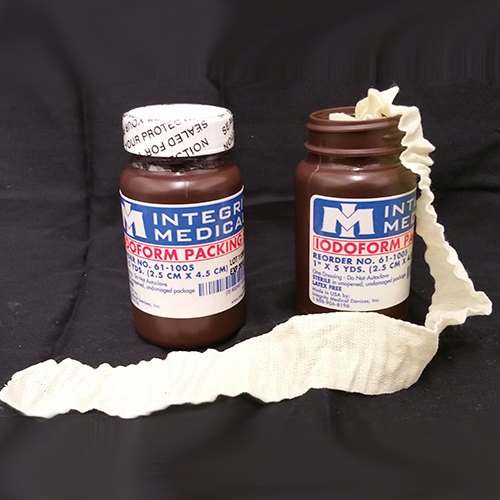Uses of Iodoform-freons
Iodoform is antiseptic and it is particularly used for the dressing of the wounds. Iodoform is crystalline solid of pale-yellow color and it has medicine like pungent odor. It liberates the iodine so it has the antiseptic properties. It has a sweetish taste and is occasionally, used as a disinfectant on a small scale. Nowadays, its use is suppressed by the superior antiseptics, but earlier it was used as a medicine for the healing of the wounds. Formerly, it was employed as intravitreal and topical antiseptic.

For cats and dogs, it is an active ingredient for many of the ear powders along with propanoic acid, and zinc oxide which is used for preventing the infection and for facilitating the removal of hair from their ear. The odor of iodoform is unpleasant so it has been replaced by the other iodine-containing compound.
Freon is used as a refrigerant, and as propellent in the foams and aerosols such as hair sprays and body sprays. It is also used for air conditioning. Freons are the derivatives of the ethane and methane. They are easily liquefiable, non-toxic, and non-corrosive gases. In the past, it was commonly used in the industry. It is used in industry and commerce. They are also used for the production of fluorocarbons resins and the production of the lubricants. Despite the various applications, it has some risks to human beings and the environment.
Environmental Effects of Iodoform-freons
The elevated levels of iodoform-freons are toxic to both the environment and human life. Exposure to the high levels of iodoform may cause nausea, dizziness, affects the central nervous system, heart, kidney, liver damage, and depression.

Freons affect the ozone layer in the atmosphere. Commonly it is known as CFC. In many countries, including the United States its manufacture was banned in 1994. Freons initiate the radical chain reactions and cause the destruction of the ozone layer. It disturbs the equilibrium point in the atmosphere. Exposure to the high concentration of the freon gases causes a loss of concentration and coordination. It is not a carcinogen, mutagen, or teratogen and it does not have long term effects on human health. Children are more exposed to the freons as compare to the adults. However, for the environment it is a significant pollutant, so the use of freon in modern appliances has been phased out.